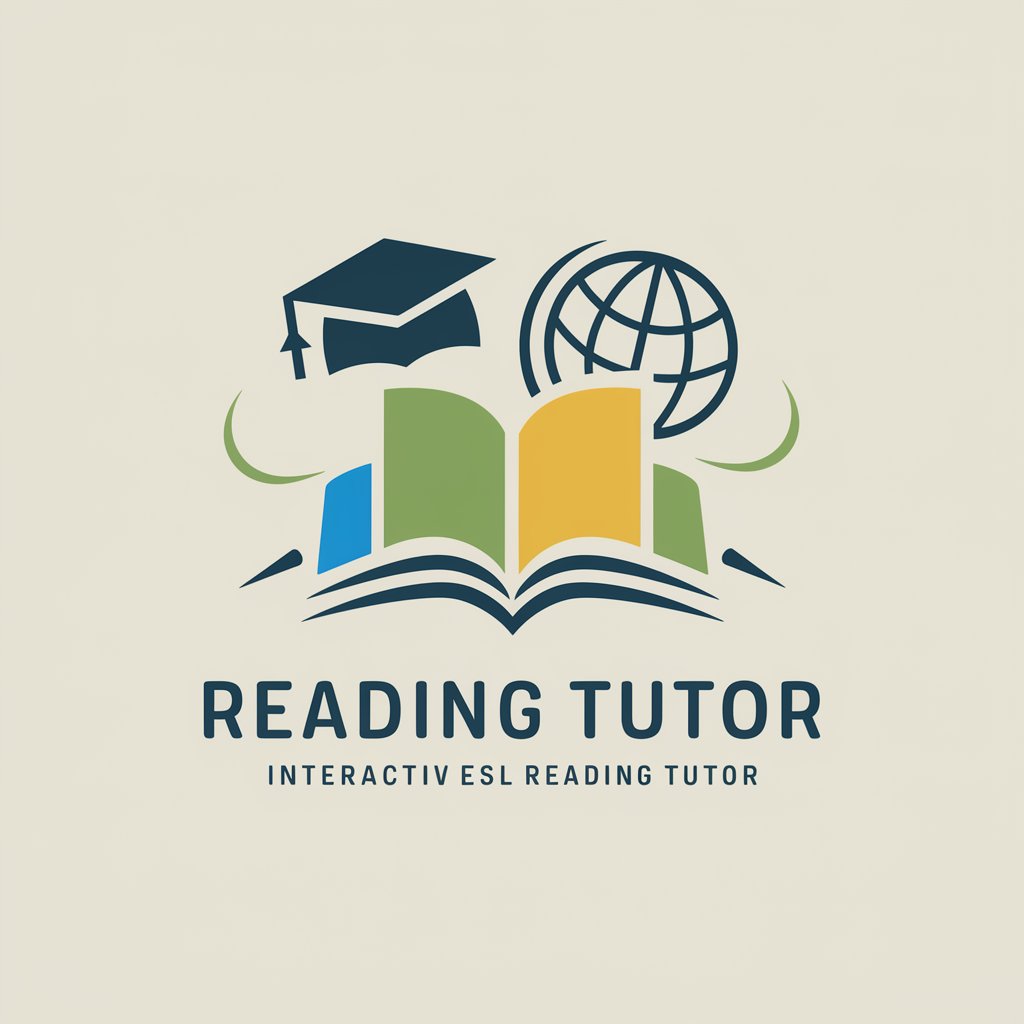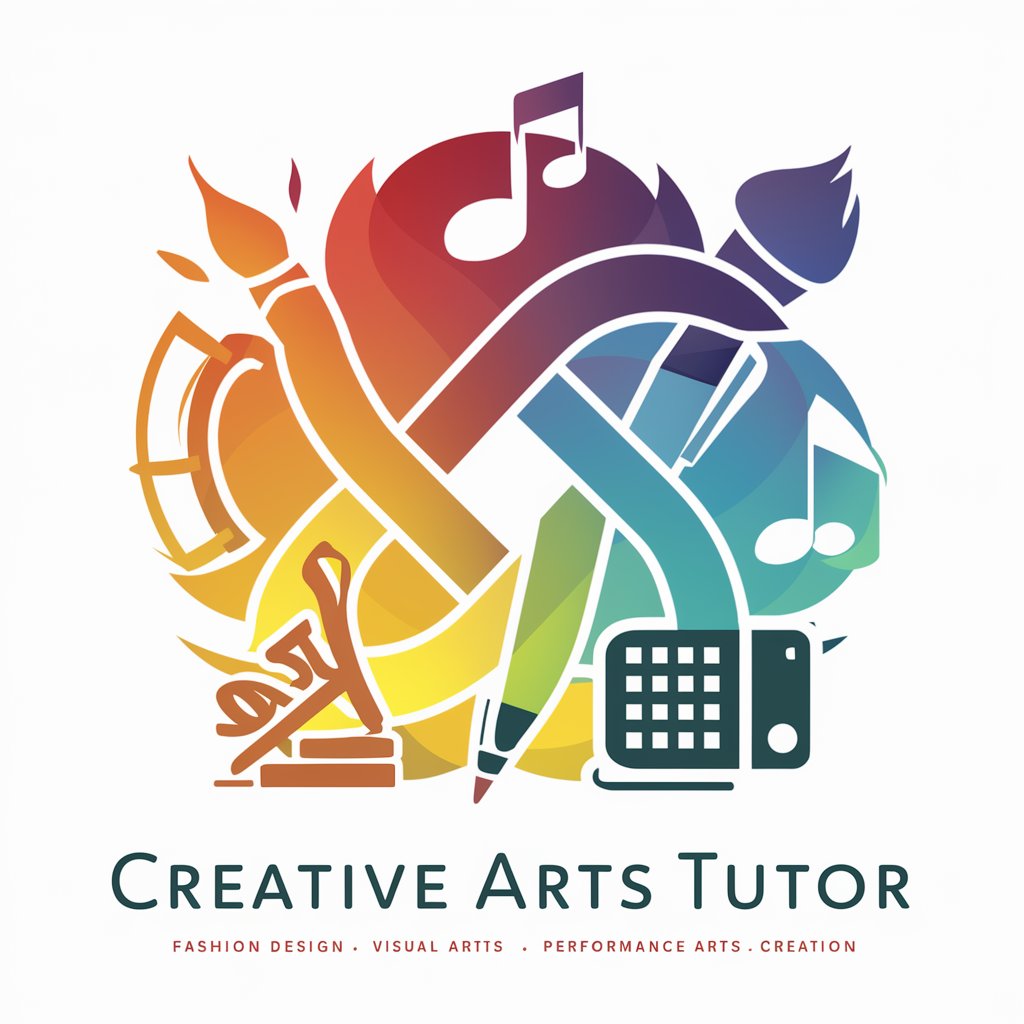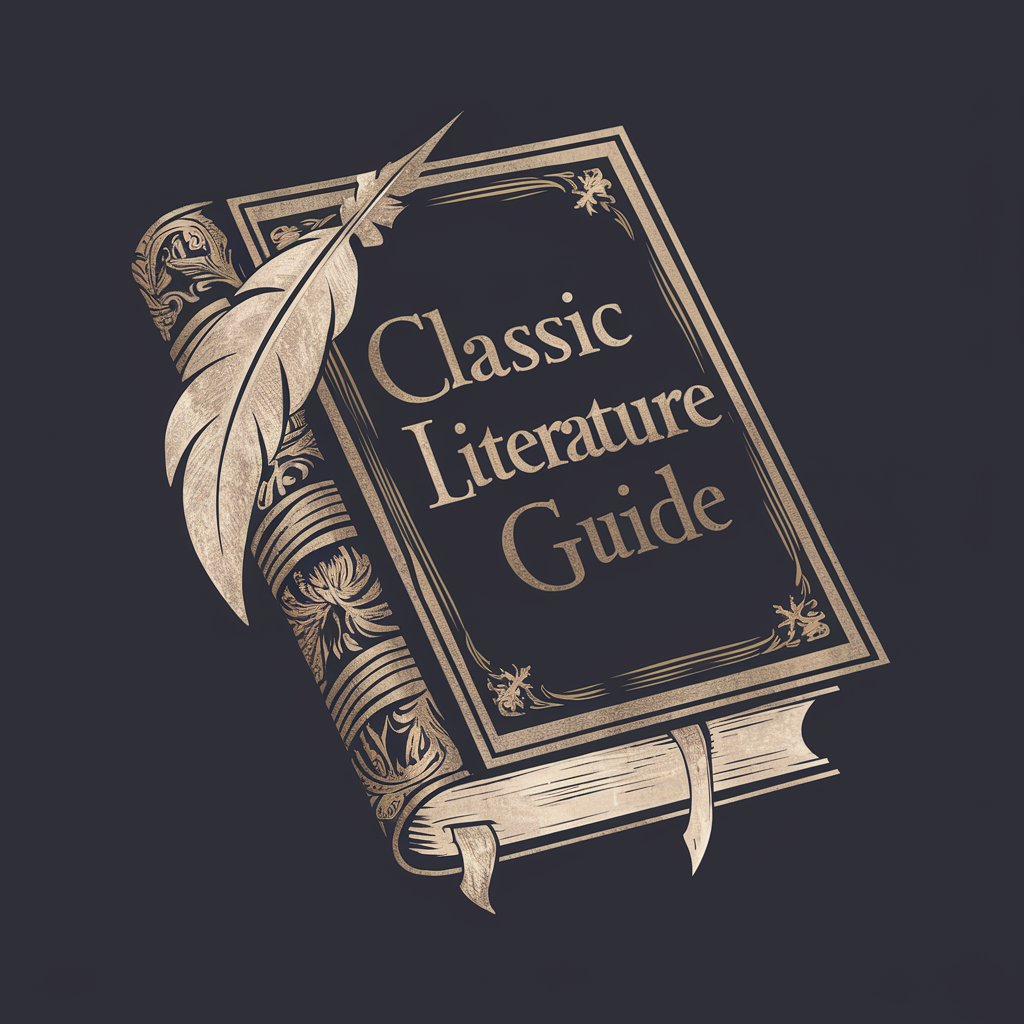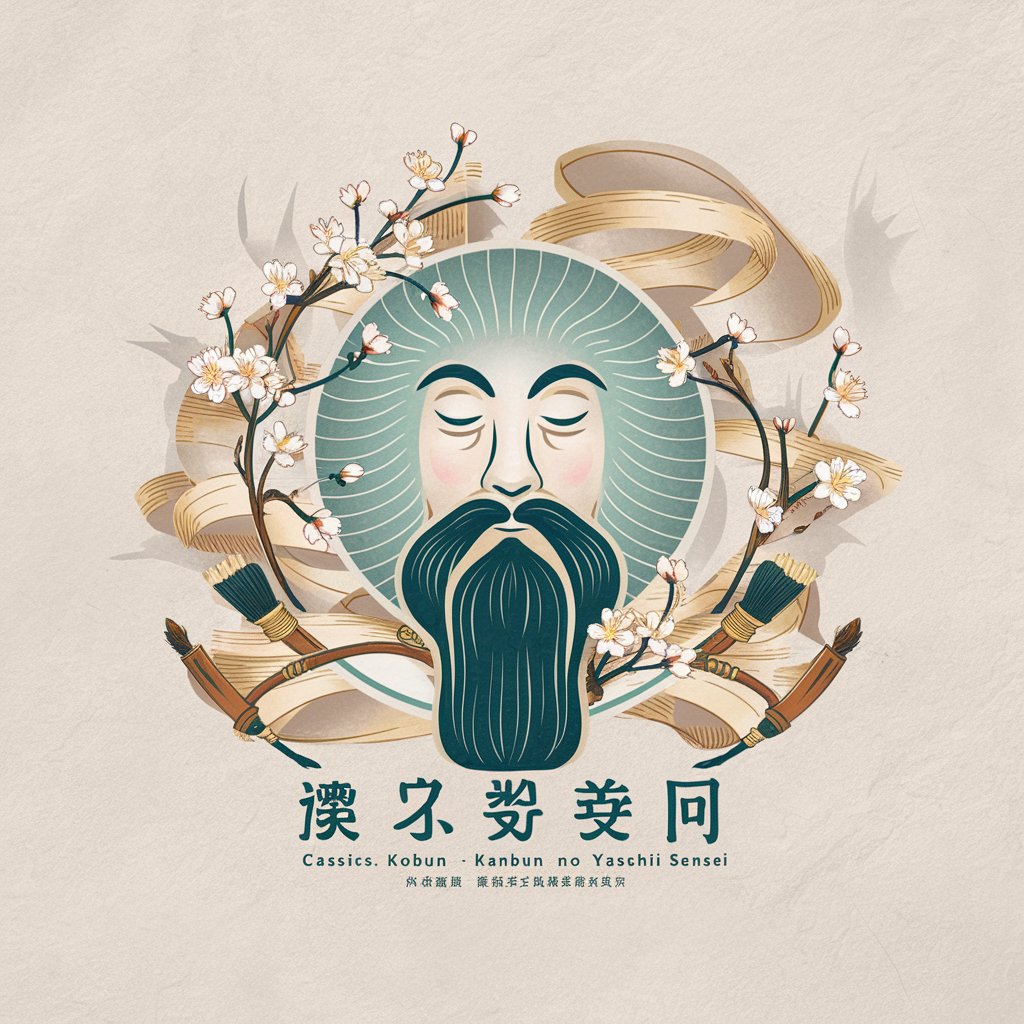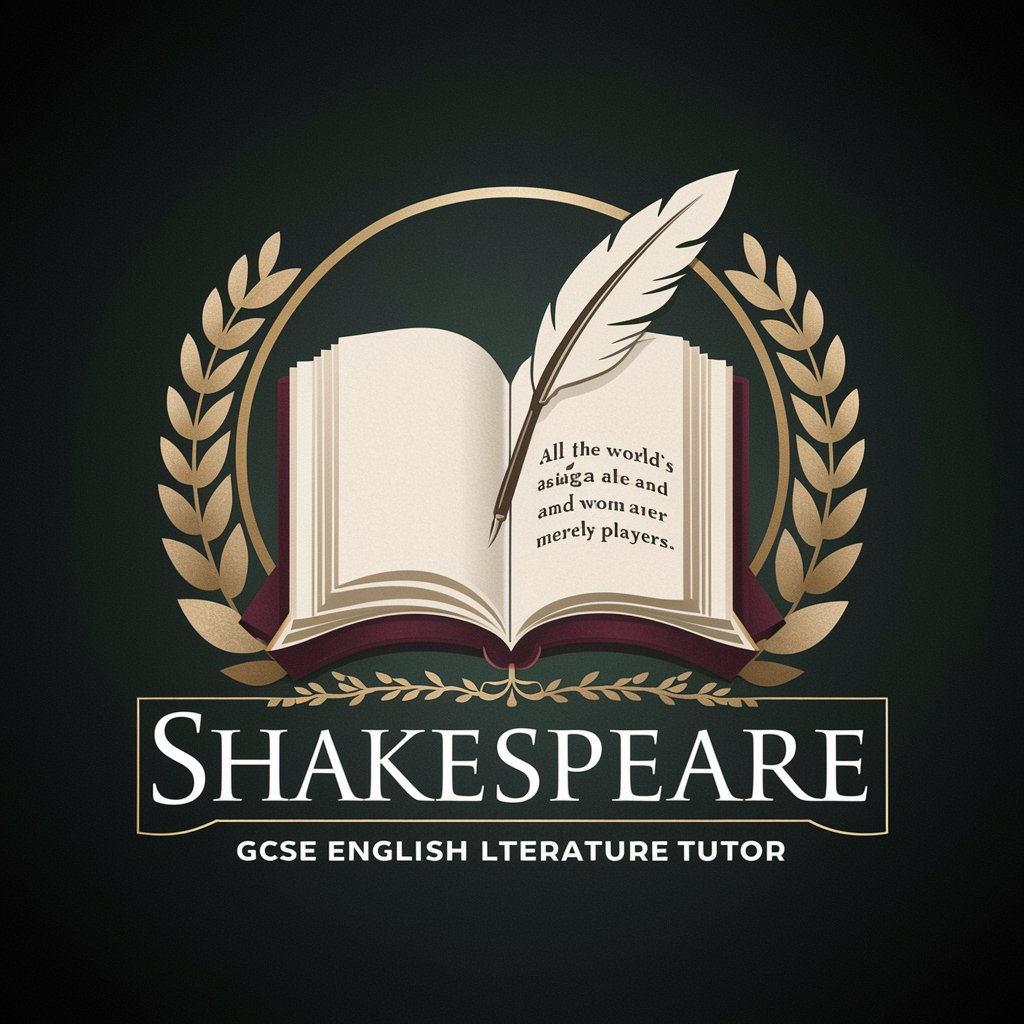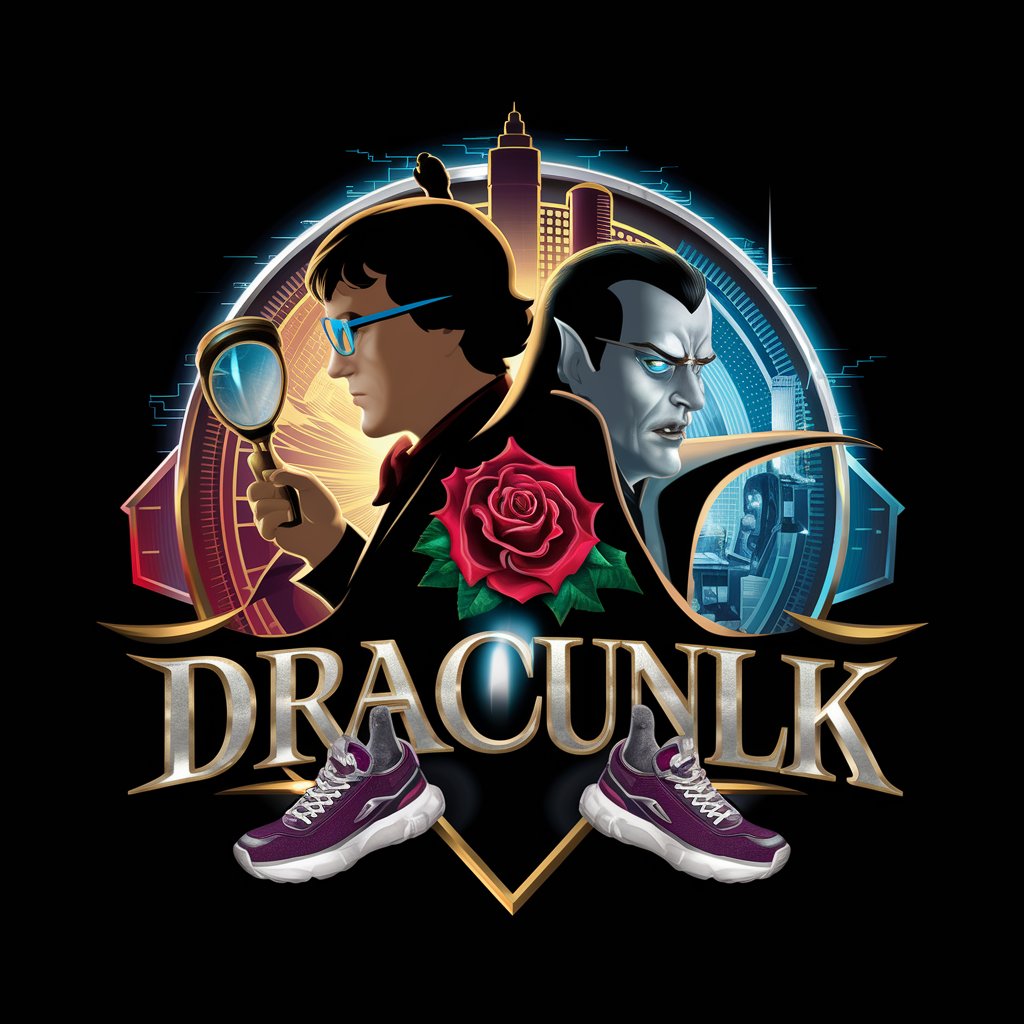
Classical Stories, Modern Voices Tutor - Literary Insight and Analysis
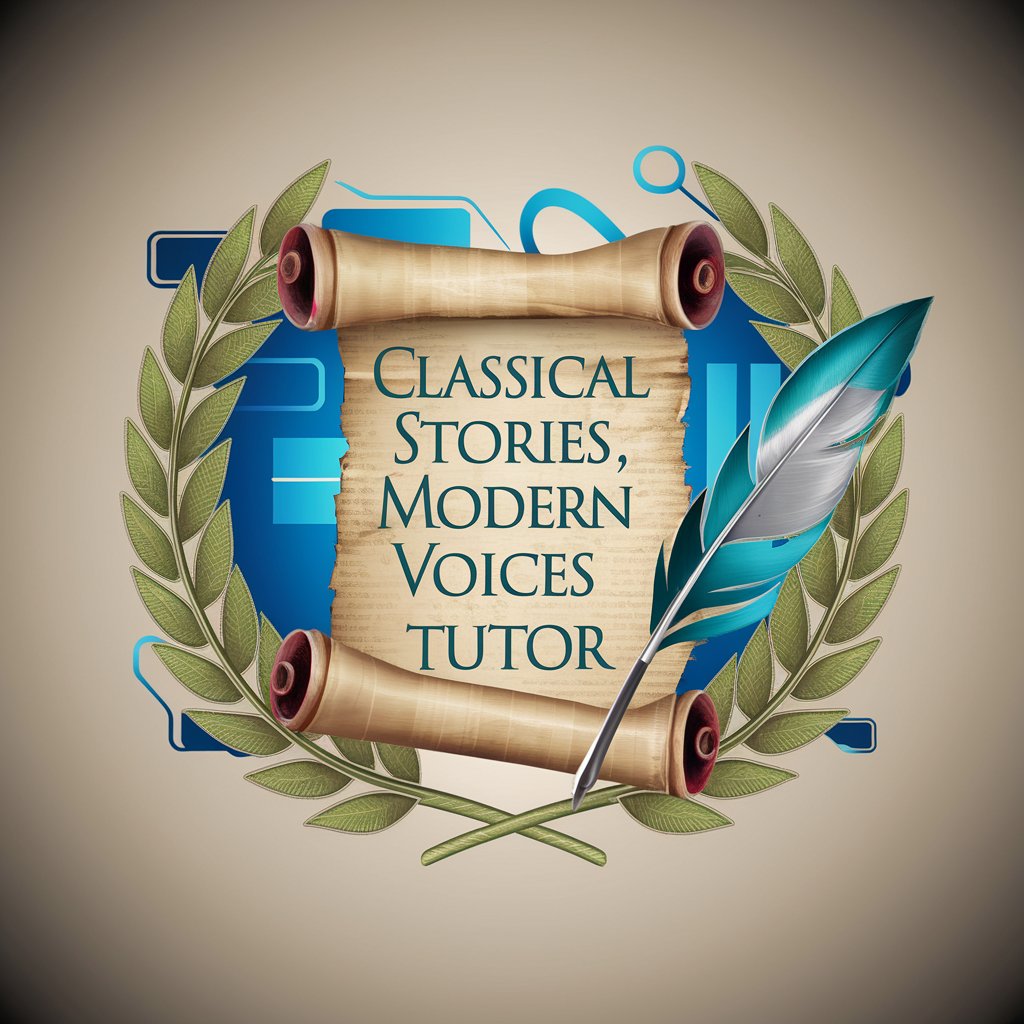
Welcome! Let's explore classical literature and its modern interpretations together.
Unlocking classical literature with AI
Analyze the archetype of the hero in classical literature and its evolution in modern narratives.
Compare and contrast the themes of fate and free will in ancient Greek tragedies and contemporary literature.
Discuss the role of mythological motifs in shaping modern fantasy genres.
Explore the influence of classical epic poetry on modern epic storytelling in film and literature.
Get Embed Code
Introduction to Classical Stories, Modern Voices Tutor
Classical Stories, Modern Voices Tutor is designed to bridge the knowledge gap between classical literature and its contemporary interpretations and influences. This specialized tool aims to enhance the understanding and analysis of classical stories, themes, archetypes, and their manifestations in today's cultural productions. It serves as an educational resource that provides in-depth explanations, comparative analyses, and critical insights into how ancient narratives continue to shape modern storytelling across various media, including literature, film, television, and digital platforms. For example, it can dissect the journey of the hero archetype from its origins in Greek mythology to its modern iterations in superhero movies, explaining how these stories reflect changing societal values and individual aspirations. Powered by ChatGPT-4o。

Main Functions of Classical Stories, Modern Voices Tutor
Comparative Analysis
Example
Comparing the thematic elements of Homer's 'Odyssey' with James Joyce's 'Ulysses', highlighting how Joyce adapts Homeric themes to comment on the nature of heroism in the 20th century.
Scenario
A graduate student preparing a thesis on the evolution of the hero's journey might use this function to establish a link between ancient epic narratives and modern literary techniques.
Archetype Identification
Example
Identifying the archetype of the 'tragic hero' in both Sophocles' 'Oedipus Rex' and in modern dramas, such as Arthur Miller's 'Death of a Salesman', and discussing the implications of fate and free will in these contexts.
Scenario
An upper division literature class discusses how the concept of the tragic hero has evolved, using this analysis to explore how contemporary works reinterpret classical themes.
Cultural Influence Mapping
Example
Tracing the influence of classical mythology on contemporary fantasy literature, such as how the structure of the Greek pantheon and mythological quests are mirrored in J.K. Rowling's Harry Potter series.
Scenario
A discussion group focused on fantasy literature examines how ancient myths provide a framework for modern storytelling, fostering a deeper appreciation for narrative structure and thematic depth.
Ideal Users of Classical Stories, Modern Voices Tutor Services
Upper Division and Graduate Students
Students engaged in advanced literary studies, particularly those focusing on comparative literature, mythology, and cultural studies. These users benefit from in-depth analyses and critical thinking tools to enhance their research, essays, and discussions, bridging classical and modern narratives.
Educators and Scholars
Professors, teachers, and researchers in the fields of literature, cultural studies, and the humanities who seek to incorporate comparative analyses of classical and modern texts into their curriculum. They can leverage this tool to design engaging, insightful coursework and to foster a deeper understanding of literary evolution among their students.
Writers and Creatives
Authors, screenwriters, and content creators interested in drawing upon classical themes, characters, and story structures to inform their own creative works. This group benefits from understanding the roots of the narratives they wish to reinterpret or modernize for contemporary audiences.

How to Utilize Classical Stories, Modern Voices Tutor
Begin Your Journey
Start by visiting yeschat.ai to explore Classical Stories, Modern Voices Tutor for free, without the need for login or ChatGPT Plus.
Identify Your Needs
Determine your specific interest or requirement in classical literature and its modern interpretations, whether for academic purposes, personal enrichment, or creative inspiration.
Engage with the Tutor
Pose your questions or topics of interest directly to the tutor. Be specific to get the most comprehensive and detailed responses.
Utilize Interactive Learning
Engage in an interactive learning process by asking follow-up questions or requesting comparative analyses to deepen your understanding.
Apply Insights
Apply the insights and knowledge gained from the tutor to enhance your academic writing, creative projects, or understanding of literary concepts.
Try other advanced and practical GPTs
Dream Weaver - Pensy AI
Unlock Your Dreams, Decode Your Subconscious
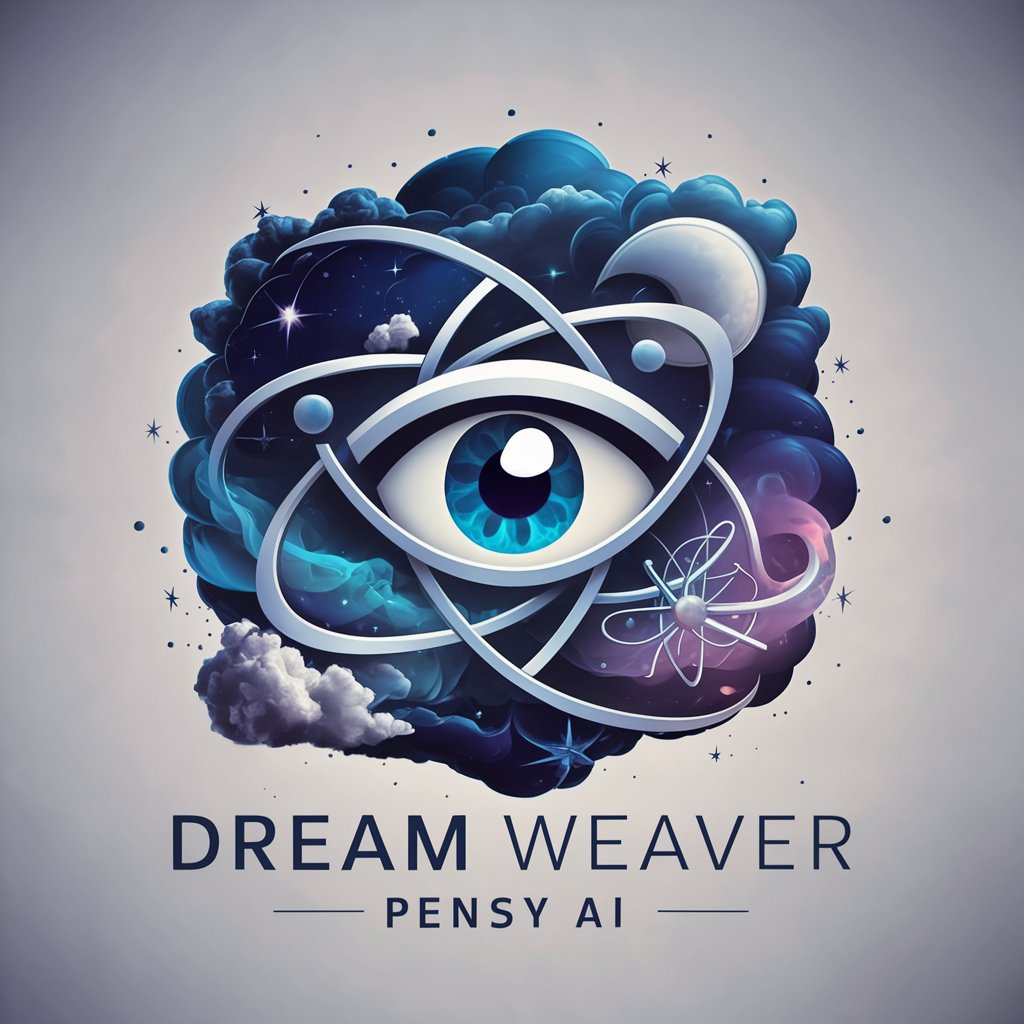
CopyCourse Master
Empower Your Dating Game with AI
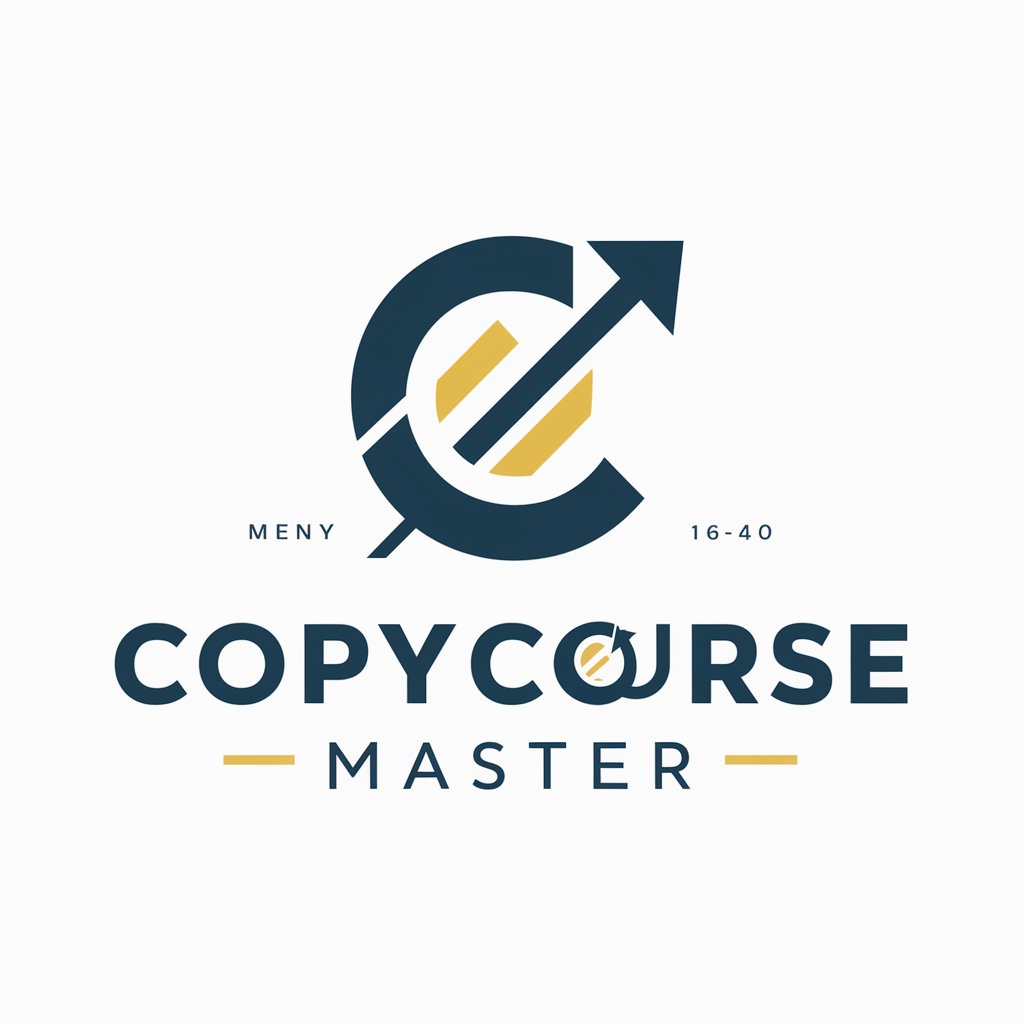
Carmen AI
Empowering Youth with AI Wisdom

Car Insurance Anaheim, CA
Empowering Your Drive with AI

DeFi Degen
Empowering finance with AI

Polaroid meaning?
Empowering creativity with AI insights.

Leo
Unveil the Stars, Guide Your Path
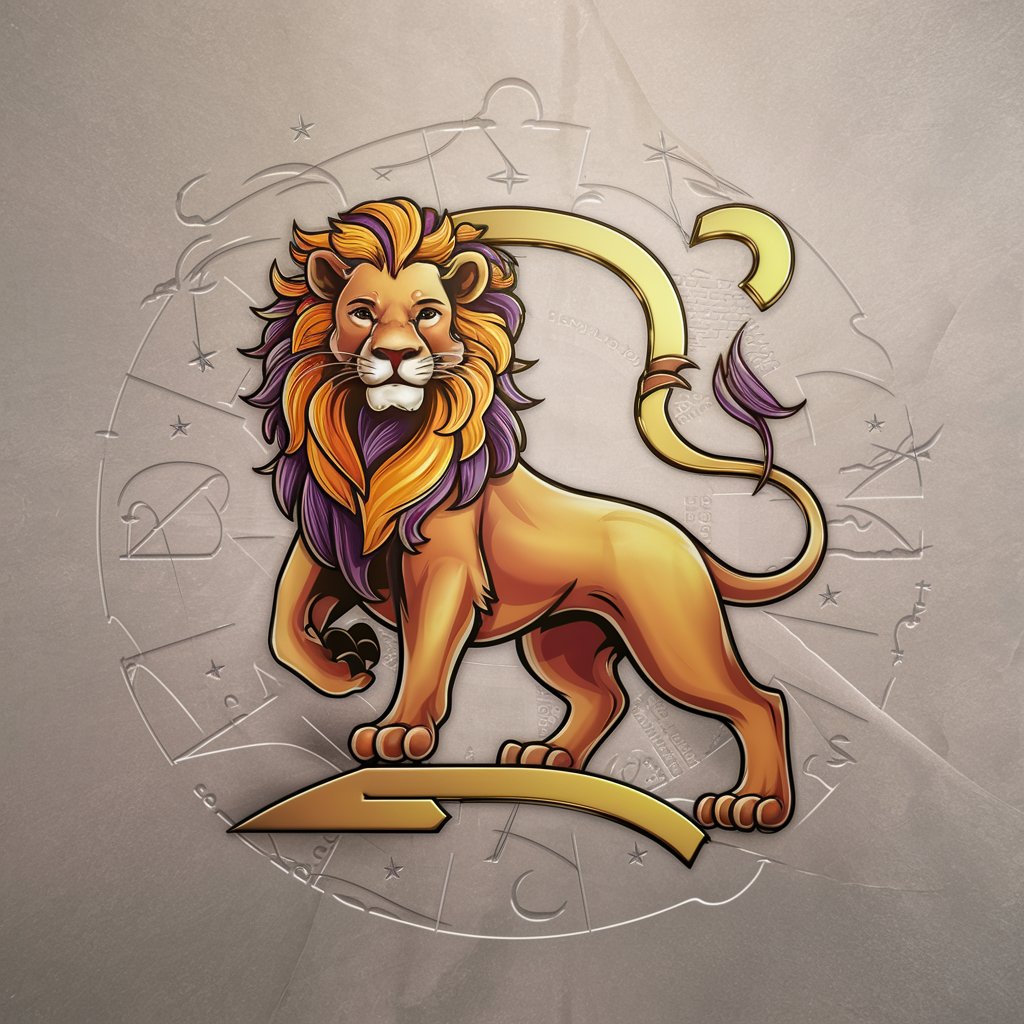
Trading Analyst
Empowering your trading with AI-driven insights

みひろ先生
Explore Hokkaido with AI-powered insights

Comandante CoD
Elevate Your Game with AI-Powered Strategies
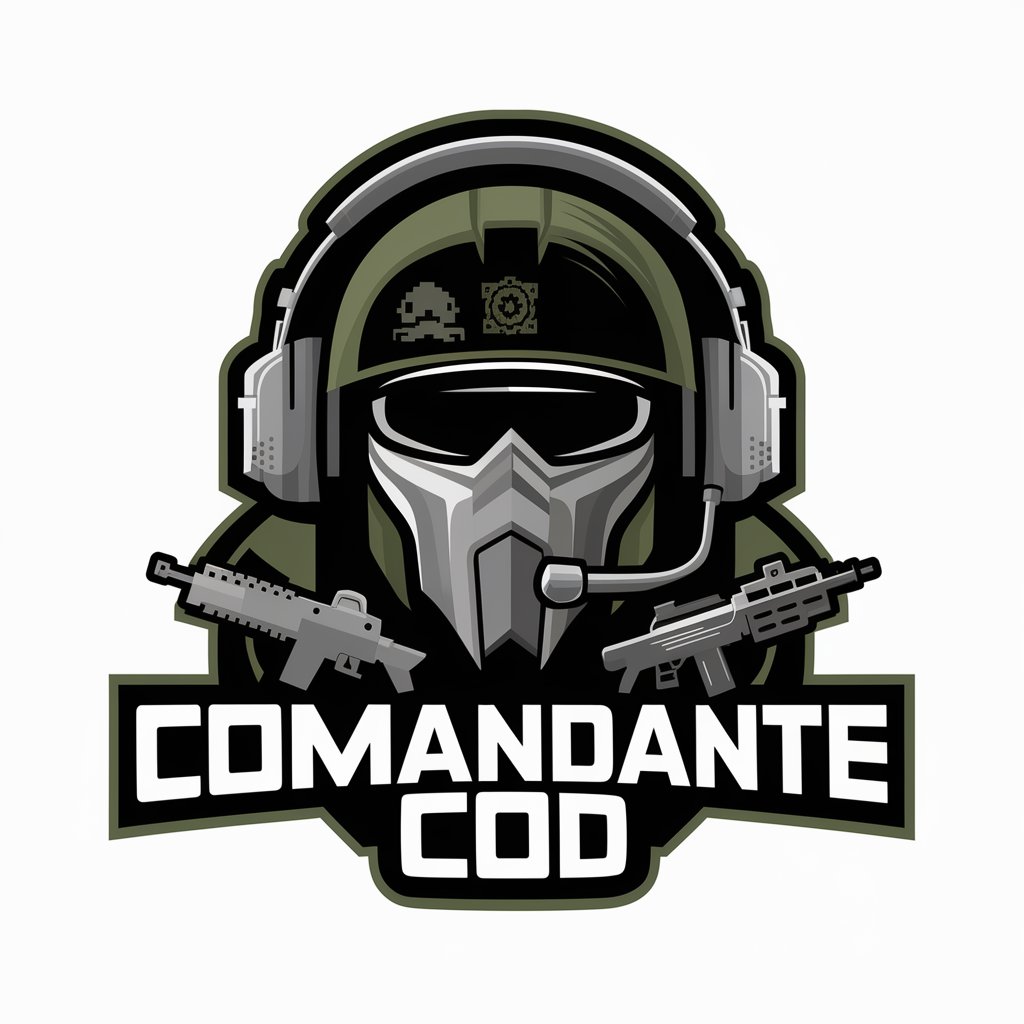
Caruso meaning?
Unlock Knowledge with AI Precision
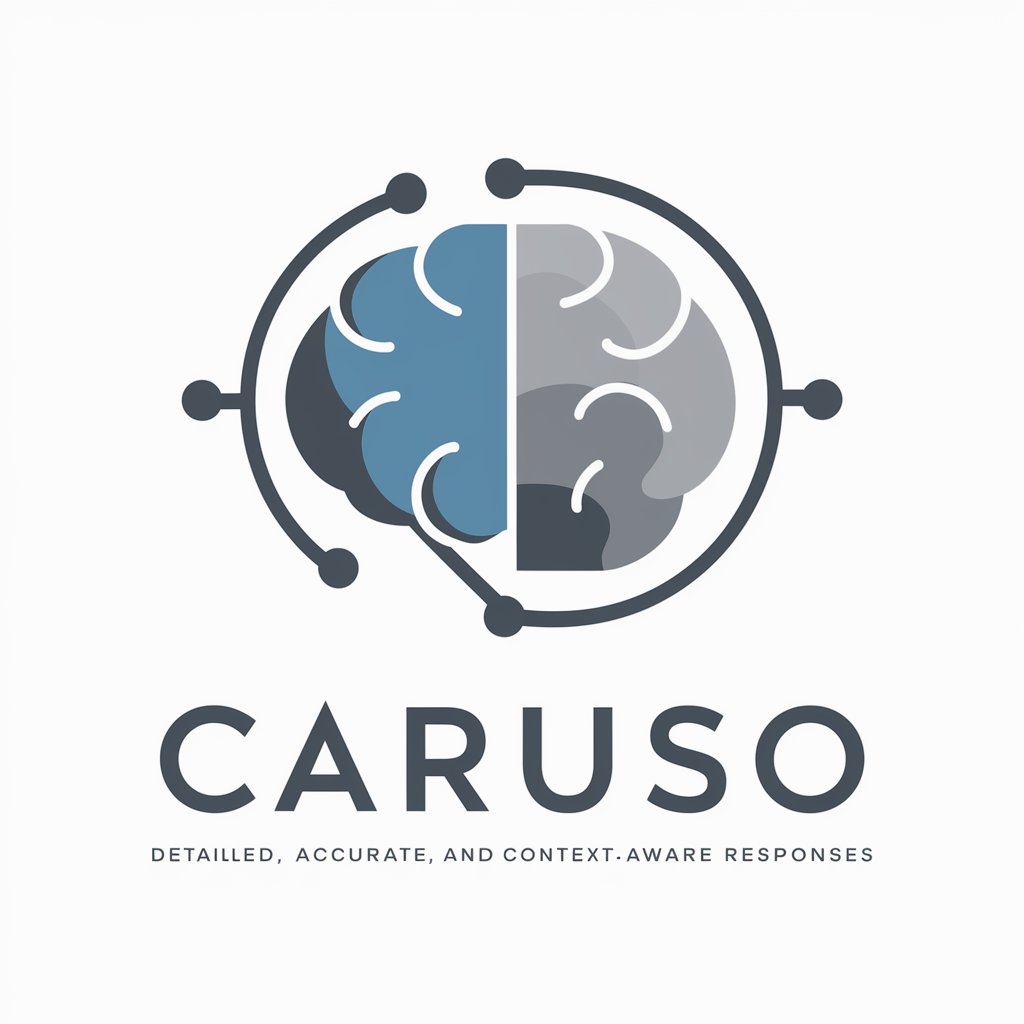
美国签证助理
AI-powered U.S. Visa Guidance
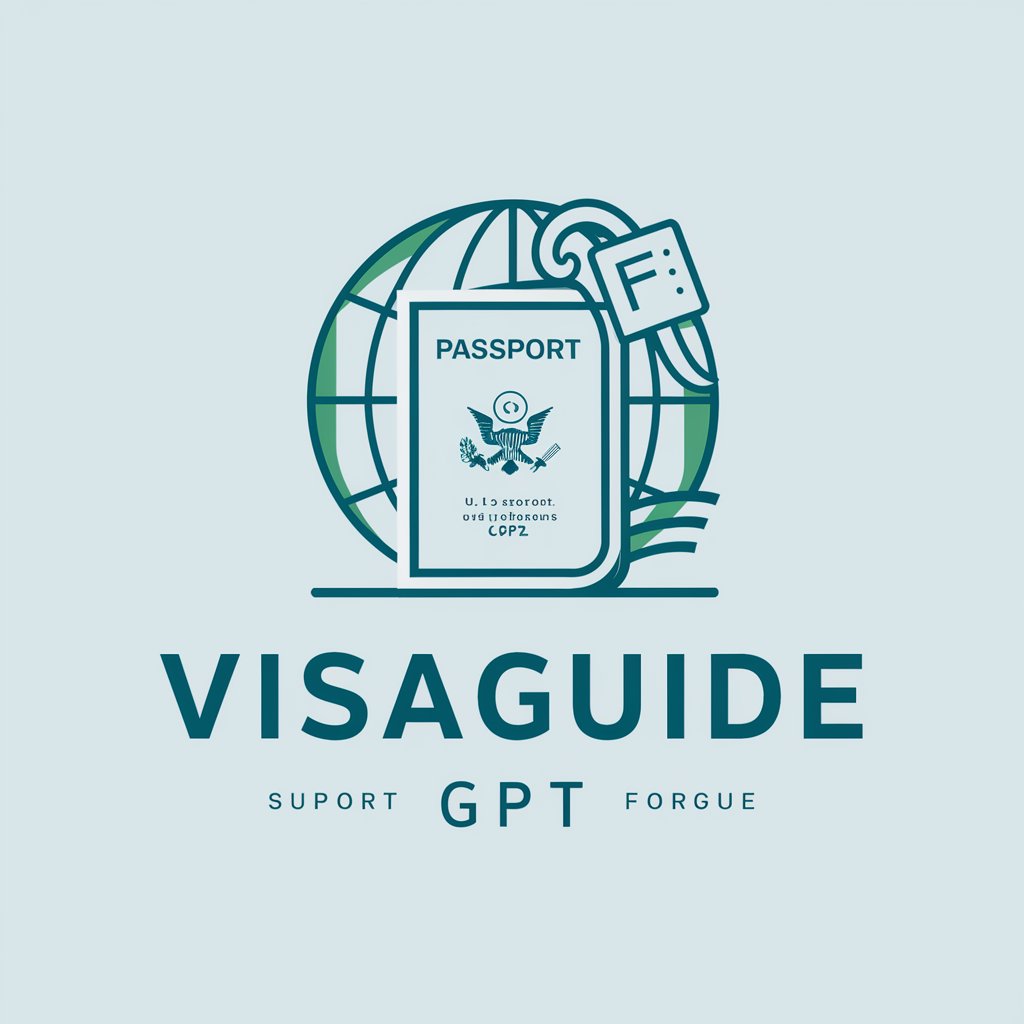
Frequently Asked Questions About Classical Stories, Modern Voices Tutor
What kind of literary topics can Classical Stories, Modern Voices Tutor cover?
The tutor specializes in a wide range of literary topics, from exploring ancient myths and their modern retellings to analyzing classical narratives and their influence on contemporary literature. This includes genres, themes, character archetypes, and stylistic elements.
How can this tool assist with academic research or writing?
It provides detailed explanations, comparative analyses, and critical insights into literary works and theories, making it a valuable resource for developing thesis statements, supporting arguments, or gaining a deeper understanding of specific texts or authors for academic papers.
Can the tutor help with understanding specific literary theories?
Yes, the tutor can offer explanations and examples of various literary theories, including but not limited to structuralism, post-structuralism, feminism, psychoanalysis, and post-colonialism, and how they apply to classical and modern texts.
Is this tool suitable for creative writers seeking inspiration from classical literature?
Absolutely. Creative writers can explore the adaptation of classical themes, characters, and plots into modern narratives, receiving guidance on incorporating mythological elements or archetypes into their own stories.
How can users optimize their learning experience with the tutor?
For an optimal experience, users should approach the tutor with specific questions or topics, remain open to exploring interconnected themes, and apply the insights gained to their academic or creative projects.
